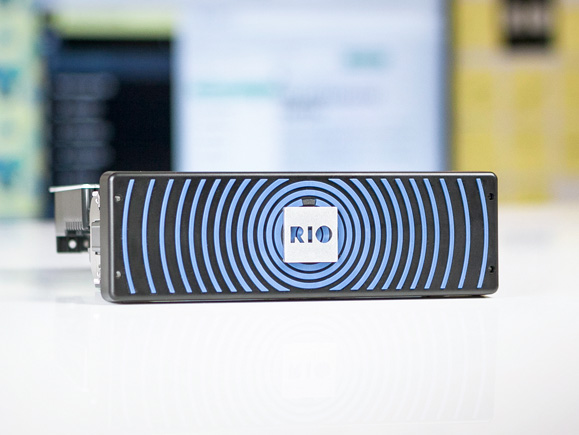How digital brand RIO aims to optimize the logistics industry
Transportation and logistics are becoming increasingly decisive factors in the overall success of an industrial company. A fully loaded truck breaking down on the side of a country road could complicate things elsewhere—for example, a production line might come to a standstill because the parts the truck is carrying cannot be delivered on time and nobody at the factory was informed of the delay. The TRATON GROUP, which includes the MAN and Scania brands, aims to avoid such situations. That’s why it produces more than just trucks and buses; it also works to ensure that transports and tours with these vehicles are as trouble-free as possible.
One-stop monitoring for hundreds of daily transports
TRATON’s digital brand RIO connects all parts of the supply chain. Suppliers, freight forwarders, factories, and dealers are linked with each other on a logistics platform in the cloud. Since they all operate in the same digital environment, they benefit from transparency along the entire chain.
The Munich-based team is well equipped to handle such challenging tasks. There are numerous industrial companies, and not just in Europe. Each has hundreds of suppliers and its own production facilities, and every day, thousands of transports are needed between these sites. RIO is focusing on digitalizing the structures they use and connecting them with each other—monitoring, steering, and optimizing a company’s countless truck transports from one central place to do so. There is great interest in this service: “We gain 25% of new customers every month,” explains Jan Kaumanns, CEO of RIO.

Trucks from all brands can be retrofitted with the RIO Box. This then allows the RIO telematics services to be used with the aid of the FMS (fleet management system) interface.

“We gain 25% of new customers every month.”Jan Kaumanns
CEO of RIO
Transparency for each individual shipment in the truck
Although many transport companies are already connected with each other in some way, there are still individual parts of the supply chain that have virtually no contact with one another. “There are numerous isolated solutions on the market for transportation logistics. We want to link them together and thus offer transparency for each individual shipment,” says Karsten Kampowsky, Head of Product Management at RIO. This will lead to efficiency gains for customers as well as freight forwarders and suppliers; in other words, all those involved could benefit from a common platform.
In the future, for example, the truck is supposed to automatically report delays to the recipient of the cargo. This sounds simple, but it has been impossible to achieve so far in any sizable dimension. “For the first time, we are delivering a complete logistics supply chain, one that is end-to-end,” says Kampowsky. That means: customers commissioning transportation services know where a specific product is at any point in time and can respond accordingly. Moreover, this transparency applies to every single part the truck is carrying, regardless of which language the truck driver speaks. Digital processes—RIO’s core business—make this a reality.
An open system across all brands
Development of the digital platform has been underway for three years, and with it, RIO can offer digital services across all brands, groups, and vehicles. Customers are not tied to specific manufacturers. The RIO services operate in an open system and combine all the technical prerequisites under one umbrella. That corresponds to the reality of the transportation industry: freight forwarders generally operate trucks from multiple manufacturers and the software they use has to be able to handle this. Furthermore, large corporations often use dozens of transport companies as part of their logistics chains. These companies, in turn, have different vehicle fleets and their own software applications. And all this diversity has to be integrated; this is the only way for the RIO software to connect a widespread network of suppliers, factories, importers, or dealers.
Once transparency has been achieved, the transports can be optimally managed and perfected down to the last detail—which also leads to higher truck capacity utilization. After all, planners and dispatchers know exactly how full a truck is and can also commission additional cargo on short notice. The trucks are then automatically rerouted. The result is fewer empty runs and shorter idle times for vehicles. Not only does it make the companies involved happy; it also results in fewer emissions, thus decreasing the overall environmental impact.

